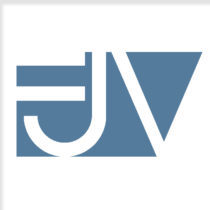Landscape Architecture for Landscape Architects › Forums › GENERAL DISCUSSION › What are the best Landscape Architect qualifications and trainings to get ahead?
- This topic has 1 reply, 12 voices, and was last updated 15 years, 2 months ago by
 nca.
nca.
-
AuthorPosts
-
July 26, 2009 at 2:26 am #173591
 Daryn FairParticipant
Daryn FairParticipantFor example: environmental certifications such as LEED, Sustainable Sites, Water treatment, etc.???
July 26, 2009 at 5:26 am #173612 ncaParticipant
ncaParticipantIn looking at your profile Daryn I see that you have a good amount of experience, so your question may be less generalized than I assumed. I’m looking forward to what the more experienced members have to say.
My thought is that it seems like the discussions on accreditation here ultimately boil down to the marketability of particular certifications for job-seeking individuals and the validity of those certifications after weeks or months of non-regular practice. It makes me wonder if time may be better spent honing practical skills such as sketching, grading, plant identification, history, or even self-study in business practice such as guerrilla marketing or more direct marketing such as community involvement through rotary club membership or the local ASLA chapter.
In my very humble opinion and limited experience I try to understand what makes a candidate (LA) attractive. First and foremost, I imagine for nearly any level–good, productive capability being prioritized followed closely by the ability of the person to generate more work, whether it be through their advanced skill set in design practices and approach, or their ability to ‘schmooze.’
I see less tangible (for lack of a better vocabulary) qualifications such as certain accreditations coming in a somewhat distant last. Having someone LEED accredited in a small office may be utilized as a marketing angle (in a larger office it seems somewhat futile), though not being accredited or having a staff member certified in the office doesn’t seem to be very restrictive for that office to work on LEED projects. I worked in a small office last year with no accredited (at the time) professionals and we worked on a few LEED projects, though I can’t be sure exactly how the project was structured as far as outside consultants.
I think I could dig into this topic much deeper regarding the validity of accreditation or even academic training in general within the field of Landscape Architecture and design, though I think I’ll reserve my thoughts and see what other, more experienced members have to say.
Thanks for a good topic.
July 26, 2009 at 10:32 am #173611 Ryan A. WaggonerParticipant
Ryan A. WaggonerParticipantHey Daryn, myself being someone fairly new in the industry I would also like to know a few opinions. My first position was in a large firm that heavily pushed the LEED accreditation which I unfortunately passed right after our office was closed. I think that it was a great thing to learn, and think it may help in a smaller office for the points Nick put forward. However, I have never seen any credentials like these specifically asked for under posted job requirements (not that there are many out there right now anyways)…but I would love to hear thoughts on the subject…
July 26, 2009 at 2:49 pm #173610 Bob LutherParticipant
Bob LutherParticipantit depends on what YOU are trying to accomplish. If you are working for a firm they tend to use the accreditation of the principles and senior project managers (minimze liability exposure), and accomplishments that are held by junior members of the firm are generally ignored, other than and overall count (we have 6 licensed LA and 3 LEED certified designers). If you are trying to get a job the accreditation will help you compete with other potential hires but if the company already has an expert, or if they do not do work in the field that you have the accreditation, you may not be that desirable. Lastly if you are a senior member or run your own business, get what ever accreditation that helps you get more business, if you are after green work, LEED seems to be the way to go, if you are interested in more wetlands restoration try to get some sort of exposure/certification that shows potential clients your skill sets an passions.
July 28, 2009 at 4:41 am #173609 Trace OneParticipant
Trace OneParticipantMost important – personal appearance and presentation. Second, hard-working, thorough and detail oriented. Third, non-temperamental or idiosyncratic. But good-lookingness trumps it all..In my humble..!
🙂July 28, 2009 at 5:33 am #173608 ncaParticipant
ncaParticipanttrace-
i’m a bit surprised by your first, most important point-‘personal appearance.’ Are you being facetious?
July 28, 2009 at 10:50 am #173607 Trace OneParticipant
Trace OneParticipantYes. but I do actually believe that good-lookingness is one of the most important criteria, when it gets down to actually landing a job…..I have heard that Japanese teenagers and twenty-somethings get into plastic surgery, to help in the hiring process..
July 29, 2009 at 12:56 am #173606 Frank VarroParticipant
Frank VarroParticipantas Nada Surf said so well:
“Being attractive is the most important thing there is
If you wanna catch the biggest fish in your pond
You have to be as attractive as possible
Make sure to keep your hair spotless and clean
Wash it at least every two weeks
Once every two weeks”
ah, how I miss the 90’s…July 29, 2009 at 1:00 am #173605 Frank VarroParticipant
Frank VarroParticipantIn all seriousness, the most important ones are the ones you care about. If you care about sustainability, and decide that instead of LEED you are going to get some other cert because it will sell better today, you are setting yourself up for a year or two working for a firm that you have nothing in common with. Believe me, I know not working in a firm sucks, but it is far better then working in a firm that you don’t believe in, and that does not share your core design ideals.
July 29, 2009 at 5:56 am #173604 ncaParticipant
ncaParticipantawww…shucks. you really had me goin’ there.
well, the appalachian trail journey begins this week for a month, so i guess i won’t be ready to interview for a job for at least 3-4 months after that.
July 31, 2009 at 12:41 pm #173603 Roger BisbeParticipant
Roger BisbeParticipantI’ll ditto the comment by Andrew that field experience in terms of overseeing and monitoring projects is important. To truly understand the relationship of all elements in the landscape you must engage in the process of concept, to design, to implementation, to performance and sustainability. In my opinion, any prospective employer or client that sees you have collective experience in these aspects should be confident in your ability.
December 14, 2010 at 3:53 am #173602Tanya Olson
ParticipantNo Kidding??? You are hiking the AP?! That is totally awesome – I can hook you up with Shenandoah NP peeps if you need a food drop or a place to stay for the night, if you’re getting that far….
December 14, 2010 at 3:56 am #173601Tanya Olson
ParticipantHey Chad – do you market yourself as an irrigation designer for LA offices? One office I used to work in (CA) hired out all irrigation design work. With so many offices downsizing, your experience might be just the ticket…just an idea as long as we’re talking about marketing.
December 14, 2010 at 12:45 pm #173600 Andrew Garulay, RLAParticipant
Andrew Garulay, RLAParticipantThe biggest thing that gets you ahead is work experience – the chicken and the egg. Autocad is more often listed as a requirement than not (never seen a requirement for 2010, but often see Land Desk Top listed as prefered). Hand graphics are listed as a requirement at least 1/3 of the time. I more often see other programs such as sketchup, revit, illustrator, photoshop, … listed as “prefered” rather than required. I do see MS Word, Powerpoint, and Exel listed as requirements quite a bit. Very seldom see LEED unless it is a university job.
Most jobs that are advertised are more specialized and require some kind of relevant experience. If you are responding to a posted job, adjust your resume to make experience that fits much more prominent than any extras that you bring to the table.
December 14, 2010 at 3:54 pm #173599mark foster
ParticipantNumber one skill: interview well
Number two skill: interview well
Number three skill: interview well
Number four thru seven: don’t smell bad, be well groomed, design/tech skills and experience
Most people are incredibly bad at interviewing, and I believe it is because they are convinced they don’t have any training or skills for it . This is nonsense–anyone who has dated is already an expert. Your job interview will be much like a first date—You will be sitting across from someone who has serious commitment issues, is not sure if you are “the one”, and wants gratifying results as quickly as possible.
To wit, here are a few tips for interviewing well when applying for a job (I.e. they have worked for, and on, me):
1. Find out what they are looking for, so you can limit the time you talk about yourself. Talk about you only as much as you have to, then talk about them.
2.. Flatter them, and show an interest in their interests. If possible, learn about them and their projects before the interview. If this is not possible, comment on a project if it is on the wall. If you have to, ask to see, or about their work.
3. Help them picture you in their future. While viewing/talking about their projects, mention your skills and interests in direct relation to what they have done “That shading technique is fantastic– I used a similar technique with CAD Br549.” or “This is a great finished project, looks like a ton of work–did it come in on time?.
4. Tell them what you can and can‘t do for them– before they ask. “I could probably help you with the construction detailing, but I may need some time to get up to speed with the contract administration”.
5. Be low maintenance– show that you are thinking about how you can “hit the ground running” from day one, and that you are honest, especially about yourself. This is best done by stating the negative thing you suspect they are thinking about you. “I need a little more time with Photoshop 9V9, but I could help you on the CAD now”
6. State anything negative about yourself in terms of a temporary condition (see 3-5)
7. If toward the end of the interview you believe you are a legitimate candidate, try to ratchet down the commitment. You may want the full-time job (marriage) right now, but they may need another date or two, even perhaps living together for a while. “I believe I am a good fit for you, and you for me, but perhaps we could work together for _______weeks/months at a small salary/consultant basis. We can see how it works, and re-evaluate then”. Some may say it’s debasing your worth, but I say if possession is nine tenths the law, then residency is nine tenths the job. And who knows? The job may suck and you may be glad to have the out.
8. If you believe you are not in the running, say so. “I may not be appropriate for this position– I would appreciate it if you keep me in mind if a position opens up that you believe I would be right for. Remember: You are not interviewing for this job only–you may be interviewing for another position in the firm which hasn’t opened yet, or a position in another firm they may recommend you for. Be very careful about asking if anyone else is hiring– this is liking asking your date if he/she has any cute friends.
-
AuthorPosts
- You must be logged in to reply to this topic.


